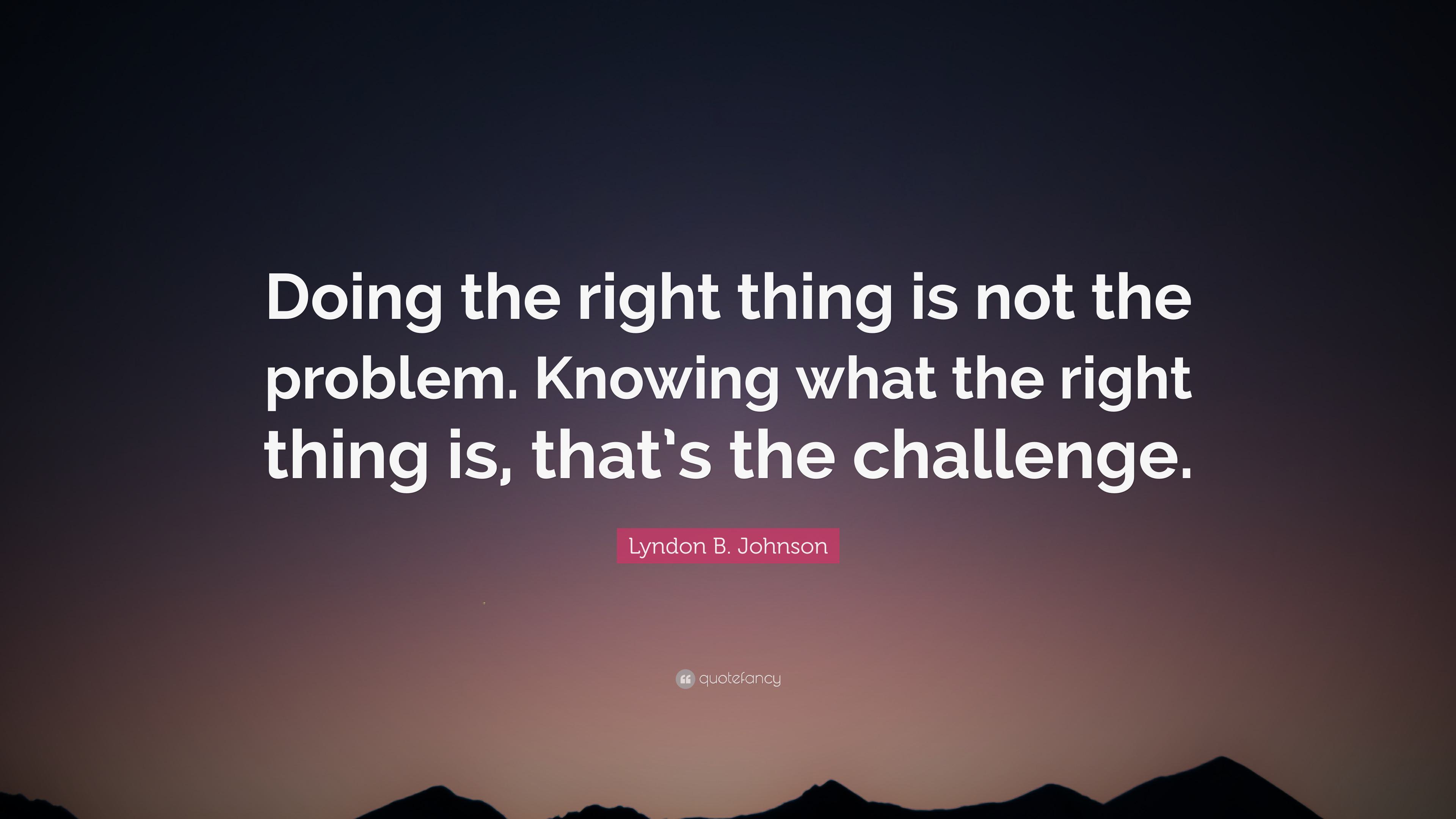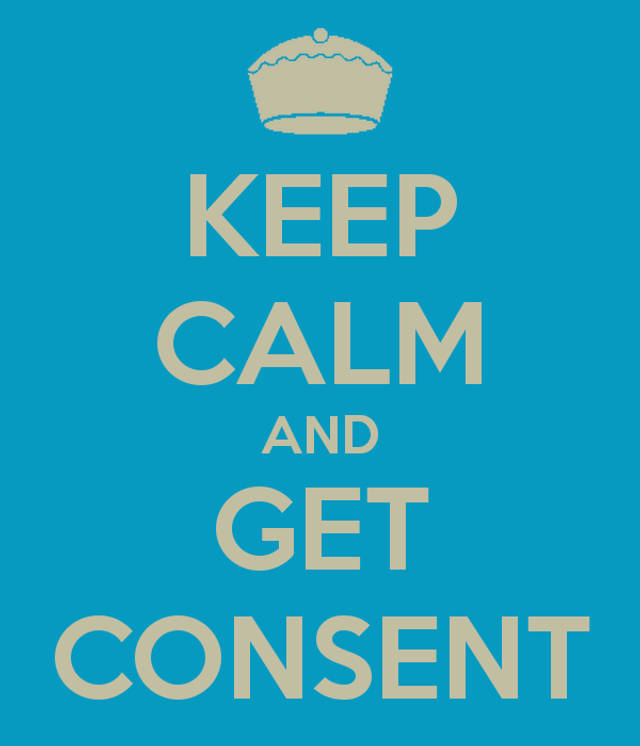Fundraising ethics – raise more money while keeping your donors happy. What could be simpler? Part two.
Last week, Ian MacQuillin of think tank Rogare explored the need for a robust ethical framework in fundraising. Here he considers two ethical dilemmas to provide much-needed context.
- Written by
- Ian MacQuillin
- Added
- February 21, 2019

Working out how to actually do the ‘right thing’
In the second part of his blog on fundraising ethics, Rogare’s Ian MacQuillin looks at a couple of ethical dilemmas. The solutions are anything but black and white.
In the first part of this article, I looked at the ethical theory that underpins fundraising practice. Perhaps you skipped that – or you’ve just started here – because you think theory is a bit dry and a bit irrelevant. What you want is guidance and advice on how to do the ‘right thing’ in practical contexts.
Stop!
‘Guidance on how to do the ‘right thing’ in practical contexts is theory. Go back and force yourself to at least skim part 1. If you don’t do that now, you may find you need to check back to it for explanations of terms and concepts used in this part.
Also, ethical theory is a lot more exciting that you might think it is.
Part 1 of this article concluded by saying that a good applied ‘rule of thumb’ in fundraising ethical dilemmas might be to do what you think the donor wants (but seriously – go check out that section if you haven’t already read it, because it is more sophisticated than just this soundbite).
But I also said that this rule of thumb can break down, especially when applied to policy decisions rather than dilemmas faced in individual professional practice, and one example of where this has happened has been in the topic of donor consent.
Ethics of consent in fundraising

Following regulatory intervention by the Information Commissioners’ Office in the UK either side of New Year 2017, many charities decided that they would henceforth only contact their donors by mail or telephone if they had their donors’ consent to do so, even though neither the then-current (Data Protection Act 1998) nor forthcoming (GDPR) legislation required them to do this (because both permit processing of data using so-called ‘legitimate interest’).
In the process of securing that consent, a number of charities lost contact with a lot of their donors (because they failed to give that consent) meaning that the charities could no longer ask those donors for donations. Many charities predicted decreases in income as a result, with some forecasting very large losses, in the tens of millions of pounds.
Even though this was not a legal issue, ethics is sometimes seen as going beyond what is legally permissible. So the question is whether charities ought to only contact their donors if they have their donors’ specific consent to do so. The ethical dilemma is this:
- Contacting donors in the absence of their consent has the good consequence of raising more money with which to help beneficiaries, but the potentially bad consequence of not respecting certain donor privacy rights.
- Contacting donors only with their consent has the good consequence of respecting certain of donors’ privacy rights, but the potentially bad consequence of raising considerably less money with which to help beneficiaries.
What to do? And how to justify what you do? This is where the difference between consequentialism and deontology (explained in Part 1) is important.
One type of justification for taking the consent-only route was that this was the right thing to do for donors, because contacting them without the consent was just ‘not right’ (even though the law permitted charities to do so). This is deontological donor-centrism. This is saying that as a moral rule or principle, you should not ask a donor for money unless you have their prior consent to do so (OK, I’m not a fundraiser, but to me this would seem to make fundraising very difficult). This is ‘non-consequentialism’ – the other term for deontology – at work.
A different – consequentialist – justification is that going for consent delivers better outcomes for the charity. It builds better relationships, gives donors a better experience, and improves metrics such as return on investment, response rate etc. But the key metric of net income seems to be the only one that hasn’t yet improved.
In fact, some charities switched between both consequentialist and deontological justifications, depending on which audience they were addressing. One charity in particular would use the ‘it’s the right thing for our donors’ moral principle when talking to the national media, but the ‘it gets us better results’ consequentialist justification when addressing the charity sector media.
Any charity is at liberty to decide whether it wants to go for consent, though it is open to criticism from a Rights Balancing Fundraising Ethics perspective that it has got the ethical balance wrong – that the prevention of potential harm to donors does not outweigh the potential harm to beneficiaries of lost income.
But it is quite another matter to try to make this into a policy recommendation for the entire charity sector, as some organisations have done. At this point, the donor-centric rule of thumb clearly breaks down, because doing what the donor wants you to do – or what you think the donor wants you to do – has serious potential to harm the welfare of beneficiaries. The execution of fundraisers’ duties in respect of certain donor privacy rights are not correctly balanced with their duty to ask for donations on behalf of their beneficiaries. It is not a mutually optimal outcome; and one group is potentially significantly harmed.
Policy making this way smacks more of ideology than it does of ethics.
By the way, this isn’t to say that fundraisers shouldn’t only contact their donors if they have their consent to do so, only that this line of argument doesn’t lead to the conclusion that they should. Perhaps a consequentialist argument along trustist lines would lead to this conclusion, but that would require evidence that contacting donors without their consent actually did damage public trust and that this led to a fall in sustainable income.
This example shows how normative ethical theory applies at a sectoral level and it is the same for any type of fundraising, such as telephone fundraising or using so-called ‘chuggers’ (as this terminology for face-to-face fundraisers is highly derogatory its use might itself be questionable, ethically). Any charity can choose not to use these methods, but their choice in no way means those forms of asking are unprincipled or unethical, from a trustist, consequentialist, donor-centrist or Rights Balancing Fundraising Ethics perspective. However, if you believe that phoning donors to ask them for an upgrade is simply morally wrong, because you don’t think that’s the right way to treat donors (or, in fact, anyone), then fair enough. But there are plenty of lines of ethical reasoning and decision making that lead to a different conclusion, and it’s only ideology that prevents you from hearing these. And with that, we return to the day-to-day ethics in fundraising and the question I opened part 1 of this feature with.

So, would you call her back?
A woman with a terminally ill child says she doesn’t want to talk to a telephone fundraiser calling from a children’s hospital. Should she be called back at a later date?
I bet you answered ‘no’. Because that can often be the default assumption.
But if we delve into this more deeply, we’ll see it isn’t necessarily so black and white.
This says that the woman ‘doesn’t want to talk’. It doesn’t say that she never wants to be called again or that she asks for the charity to stop contacting her or have her name removed from a mailing list. Had she done so, the question of whether she should be called in the future is redundant – the answer is an absolute, unequivocal ‘no’, because to do so would be contrary to most codes of practice.
However, she didn’t say that, and so we have a grey area. On first reading it looks like this is a simple Rights Balancing dilemma, weighing duties to beneficiaries to ask for donations with donor-centric duties to respect wishes and privacy. And even though the rules don’t prohibit the charity from contacting her in future, perhaps the charity ought to go beyond the rules and ought not contact her.
The default position seems to be that the charity ought not contact her because the woman has stated a negative preference and so that initial negative preference should now inform future decision-making. This is applying the donor-centric rule of thumb. And in any case, is whatever donation you are likely to get from a future call really going to make such an impact on the lives of beneficiaries that it is worth risking any potential harm to the donor? The balance seems to be clearly in the donor’s favour.
This way of thinking focuses on negative duties – the things fundraisers must refrain from doing to protect a donor from potential harm. Most of fundraising’s codes of practice are framed in this way: codifying negative duties that tell you what you cannot do.
Negative duties to donors include duties such as not unreasonably intruding into their privacy, not subjecting them to undue pressure to give (which we have already encountered) and not being unreasonably persistent in asking them to give – all of which are proscribed by the Fundraising Regulator’s Code of Practice. Even duties such as ‘treat donors with respect’ can be viewed as the obverse of a negative duty (‘do not treat donors disrespectfully’).
What are often neglected however are positive duties to donors. As well as all the things the charity must not do to protect the donor from harm, what are the things they ought to do to increase the donors’ utility, happiness or wellbeing? Perhaps in this case the charity has a duty to help the woman remember or celebrate the life of her child? Perhaps the woman would want to do this though a legacy or an in-memoriam fund?
To assume that she would not want to do this is to assume you can act in her best future interests based on the fact that some time in the past she said she didn’t want to have a conversation with a telephone fundraiser. Perhaps the donor should have the opportunity to decide that for herself. So while donor-centred fundraising as a ‘philosophy’ of fundraising focuses on positive duties to donors and how fundraisers can make them feel good about their giving, donor-centred fundraising ethics and regulation both focus mainly on negative duties and how donors should be protected from the potential harm fundraisers could cause them.
Rather than a balancing act between one duty to beneficiaries (to raise money) and one to a donor (not to unreasonably intrude into her privacy), this ethical dilemma is a balancing act – or a choice – between a negative duty to a donor (not to unreasonably intrude into privacy) and a positive duty to the same donor (perhaps to help her celebrate the life of her child, or more generally, to increase the quality of her experience as a donor). But it’s important to know whether the donor might want this kind of future relationship, a relationship in which the charity executes positive duties aimed at increasing her utility.
As I said at the start of part 1, information is deliberately lacking from the statement, and that’s in order to get people thinking about what else they might need.
Telephone fundraising is rarely used for cold calling in the UK, so this is therefore likely to be a call to a warm supporter. As she has a child with a life-limiting condition and the charity calling is a children’s hospital (a very famous one), it would seem likely that the hospital is caring for her child and that she is already supporting the hospital’s work.
And thus with this extra inference, you can start moving towards a position where the benefit to the donor from executing your positive duties toward her might outweigh whatever negative duties you have to her (e.g. not to unreasonably intrude into her privacy).
But it’s important to know whether the donor might want this kind of future relationship, a relationship in which the charity executes positive duties aimed at increasing her utility.
As I said at the start of part 1, information is deliberately lacking from the statement, and that’s in order to get people thinking about what else they might need.
Telephone fundraising is rarely used for cold calling in the UK, so this is therefore likely to be a call to a warm supporter. As she has a child with a life-limiting condition and the charity calling is a children’s hospital (a very famous one), it would seem likely that the hospital is caring for her child and that she is already supporting the hospital’s work.
And thus with this extra inference, you can start moving towards a position where the benefit to the donor from executing your positive duties toward her might outweigh whatever negative duties you have to her (e.g. not to unreasonably intrude into her privacy). Note that the statement is only phrased as ‘should she be called back?’. It says nothing about calling her back to upgrade her direct debit, just whether she should called back. So again it’s another assumption based on negative duties to treat this ethical dilemma only as an act of solicitation (‘do not ask her for money’). Perhaps she should be called back to ask about other ways of supporting the charity or remembering/celebrating her child.

At a deeper level, this ethical dilemma extends beyond simply whether to contact someone by phone: it's about whether the charity should stay in contact with this donor at all, and the phone might not be the most appropriate way to contact her to talk about such sensitive matters. So you could answer this ethical question by simply saying that no, she should not be called back because the phone is not (or maybe not) an appropriate tool for such a sensitive conversation (and I’m not saying the phone should not be used this way – perhaps it should). But that is not the same thing as saying that she should not be called back because she doesn’t want the charity to call her and so the charity must respect her wishes (which she actually doesn’t say and anyone making this decision would be assuming this).
For many charities this kind of call will be made not by someone directly employed by the charity but by a third party supplier agency, remunerated more than likely by their success at raising funds. If so, this dilemma also highlights that supplier agencies should not be siloed and that their work should be fully integrated within fundraising departments. Because if you do want to continue to talk to this donor in future and want to do it in a way that’s different to an outsourced telephone call, the processes will need to be in place to pass this information up the line. However, current practice would be that the agency is probably not being incentivised to do this and so may simply retain her details for a subsequent upgrade call, because that’s how they’ll get paid.
There are also issues about the risk to public trust and your reputation if you get a subsequent approach wrong, so a risk assessment would need to be conducted.
This is my solution to this ethical dilemma: It is permissible to sensitively contact this person through the most appropriate medium provided you have done a risk assessment about possible negative consequences.
This is an ethical justification for anyone who chooses to take this route. It doesn’t mean that it is the only possible thing you can or ought to do; and anyone who chooses not to contact this donor doesn’t necessarily do anything wrong. In response to my position, a fundraiser said she would rather be criticised for not contacting someone who wanted to be contacted rather than contacting someone who did not. That is a fair point and hopefully if you have done your risk assessment, it won’t be an issue. As I said in Part 1, ethics is not a processes for getting definitive right and wrong answers but a way for you to arrive at a choice in an ethical dilemma that is consistent and coherent and that you can justify to others. If someone does want to contact the donor in this case study, they will need to go through a decision making process such as this.
And this process – or a similar one – grounded in the theoretical concepts we looked at in part 1, can also be deployed to help decide what to do in the complex ethical challenges I described at the start of part 1, such as whether to use stark beneficiary images or intentionally make donors feel guilty. I’m not going to do that in this article (it’s already rather long) but have fun working through these dilemmas yourselves.
It also highlights the folly to trying to extrapolate solutions to individual issues in practice into sectoral policy. One could make a choice in this case study that is based on the donor-centric rule of thumb or a best-guess trustist risk analysis. One could then (fallaciously) conclude that no donor should ever be contacted in the future if they say they don’t want to engage in the current contact. And then have that written into the code of practice as yet another negative ethical duty governing fundraising practice.
But if donor-centred fundraising is about anything, it is about giving donors choice and not making choices for them.
Finally, this (longer than I anticipated when I started writing) run through of fundraising ethics shows that it is more complex and sophisticated than simply not doing the things you don’t like, and then criticising those who do them. Fundraising ethics is a sophisticated and complex topic. But we have barely scratched the surface.
















